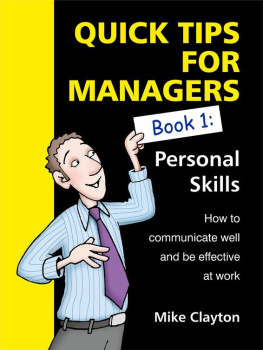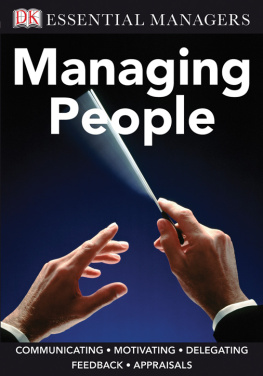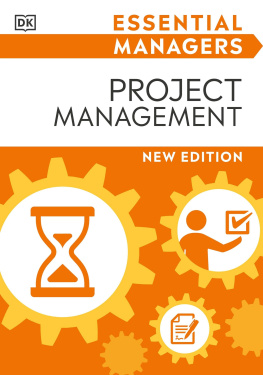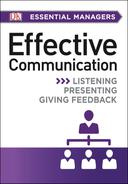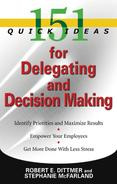Get off to a flying start as a new manager, with the help of this time-saving ebook.
Each chapter can be read in five minutes or less (ideal for reading in your coffee break or on the train) yet the tips youll pick up can benefit you throughout your whole career.
The short chapters have been designed so that you can read them in any order, dipping into your chosen topic as the need arises. Each topic comes with a practical exercise to help you put your newly-gained know-how into action.
You no longer need to search through numerous lengthy management books trying to unearth the gems that might help you in your everyday work Mike Clayton has done that hard work for you, distilling some of the most useful business models and presenting you with the essence: clear, succinct summaries of the techniques that will serve you best.
Dr Mike Clayton
Mike Clayton has spent his whole working life trying to master the personal skills in this book, first as a practitioner, building a career leading project teams, managing his time and personal productivity, communicating with his teams, clients and stakeholders, and developing his personal impact and influence.
Later, as a trainer and speaker, Mike has run courses covering all of the material in this book, leaving thousands of managers able to assert themselves confidently, use their time efficiently, communicate effectively and understand the human dynamics of their work environment.
As an author, Mike continues to write extensively about these subjects, with eleven books in print, including two books in the Management Pocketbooks series: Management Models and Handling Resistance. His other books include How to Speak so People Listen, The YES/NO Book, Brilliant Influence, Brilliant Stress Management and Brilliant Time Management; all available in eBook format.
Mike also speaks and runs seminars for clients in the commercial, public and not-for-profit sectors. Brilliant Time Management and How to Manage a Great Project are among his most popular seminars. You can find out more about Mikes books and seminars at www.mikeclayton.co.uk.
This book has its origins in a popular weekly management blog; The Management Pocketblog, which started in February 2010. In January 2013, we decided to try an experiment in blogging and so, instead of random articles each week, we created a plan for a series of nearly 80 blogs that together would survey a broad swathe of management topics in a coherent sequence.
At a typical length of just 500 to 700 words, 80 articles could never claim to be comprehensive, but that was the spirit we were aiming for. We were aiming the series at new and soon-to-be managers knowing that our readership includes many who already have a lot of experience. In a fit of retro-fever, remembering back to the early days of self-learning, we called the series The Pocket Management Correspondence Course.
With such a wealth of material, we wanted to make it even more readily available. New managers want to learn when it suits them; sometimes in chunks, sometimes reactively, on a just in time basis. We conceived the idea of these ebooks, the first of which you have downloaded and can now read in the way that fits best with your needs.
But this is not just a reprint of blogs. Each blog has been reviewed and revised. We have added additional material to many of them, drawing from nearly 200 other articles. We have also added some brand new chapters.
The result gives you the following 30 chapters. When you read them, they will give you the ability to:
- Confidently assert yourself, and make a positive impact on the people around you
- Manage your time, organise yourself, get things done, and control your stress under pressure
- Make more robust decisions
- Get the best from your current job, develop your career, prepare for getting the next job, and interview well.
- Communicate with confidence and style, persuading others, negotiating well and making meetings work for you.
- Present well, write good reports and manage challenging conversations.
- Understand key communications models that your colleagues talk about: Transactional Analysis (TA) and Neuro Linguistic Programming (NLP)
Self-confidence is the starting place for any manager. Your promotion to a managerial role has probably been triggered more by your expertise in doing your previous job, your reliability, and your character, than by any specific evidence of your managerial capability. And thats fine, because it is the way most of your colleagues were promoted too.
But it can leave you feeling a little nervous about your suitability to manage and, when your boss tells you to get on with it I have every trust in you you can feel a little isolated. Your boss leaves you to it, your new management peers dont yet trust you, and your team are wary of how you will treat them, now you have become a manager.
Here are three exercises to help boost your self-confidence.
Exercise 1: A reassuring word
In your notebook, complete the following sentences:
- I earned my managerial role because
- My three most valuable managerial assets are
- The managers I learned most from are
- I will know I am doing a good job as manager when
- Things will go wrong; thats life. If they do, the people I can go to are
Exercise 2: Seeing success
Imagine it is Monday morning and you are in work, ready to start the day. In a minute, close your eyes and picture yourself there. Picture your first few conversations and meetings going well. Notice yourself handling the situations effectively, feeling well-prepared. As you go through your morning, picture everything you do going as planned. At each stage, notice how good that makes you feel. At the end of your morning, imagine how positive and confident you will feel.
Now, close your eyes and play that movie in your head for several minutes.
When you have done this, make a note in your notebook about how you felt at the end of each part of your morning. Write down what you did to achieve your successes.
This is an exercise to repeat several times over the coming days. Each time you do it, choose another day and either the morning or afternoon. Every time you do it, you will increase your base level of confidence.
Exercise 3: Power poses
One of the reasons some people feel more confident than others is simply due to the levels of hormones in their bodies. For example, increased testosterone levels increase confidence, whilst increased cortisol levels decrease confidence. Perhaps it is surprising, but your gross posture affects levels of both of these hormones and, whether you are a man or a woman, you can increase testosterone levels and decrease cortisol, by adopting power poses.
You can do these poses for two minutes to prepare before going into a stressful situation. You can also maintain confidence-boosting hormone levels by maintaining upright, open postures during your day.

